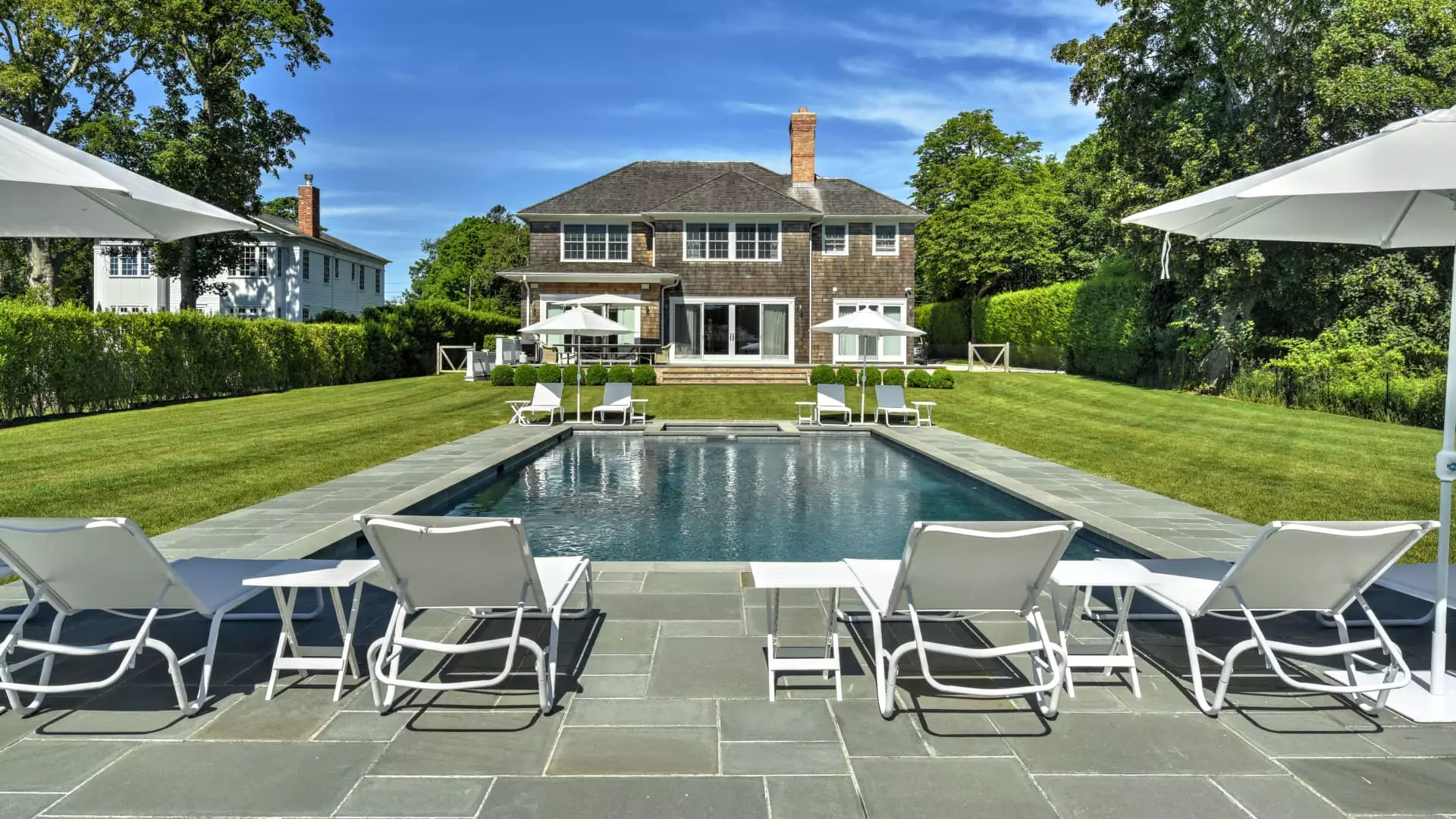5 Critical Reasons Why Hamptons Rentals Are Plummeting This Summer

This summer, the iconic glamour of the Hamptons feels unusually muted. Brokers and homeowners alike are grappling with a significant downturn in rental activity, with occupancy rates reportedly down 30% compared to previous years. This trend is alarming, particularly for affluent renters who have long viewed this exclusive getaway as one of the finest havens in the U.S. Yet, as the days grow warmer, a cold discomfort lingers in the air. As a center-right liberal, I find this trend unsettling, reflecting broader economic uncertainties that cut deep into the fabric of American leisure and lifestyle.
The Economic Chill: Uncertainty’s Grip
The current economic landscape is particularly telling. A study from prominent brokers indicates that ultra-high-end rental opportunities are suffering even more dramatically, with some businesses reporting declines between 50% and 75%. This phenomenon is not merely anecdotal; it is indicative of a deeper malaise impacting consumer behavior. Many affluent individuals are tightening their purse strings—not out of parsimoniousness, but driven by an overarching dread of economic instability. As Enzo Morabito aptly points out, “People are holding on to their money.” This statement encapsulates more than just a reluctance to spend; it embodies a cautiousness informed by an environment rife with volatility—from fluctuating stock markets to rapid shifts in international tariffs.
Weathering the Storm: Seasonal Delays and Consumer Behavior
Interestingly, the traditional rental cycle seems out of sync this year. Typically, savvy renters secure their summer homes early, often booking in March and April. However, this year’s chilly spring weather has forced many potential clients to delay their decisions. The constant refrain of economic woes acts as a psychological barrier, leading renters to reevaluate their plans, further complicating matters. Brokers are beginning to speculate that this “wait-and-see” approach is becoming increasingly habitual, with renters holding out for deals that may not materialize. This shift not only highlights an evolving mindset among affluent consumers but also poses challenges for homeowners who are anxious to fill their properties before peak season.
Perceived Value and Changing Market Dynamics
The Hamptons have transformed dramatically since the COVID-19 pandemic, which saw property prices and demand skyrocket. What was once perceived as an enviable investment has now become a source of apprehension for some homeowners. Many are reassessing the value of their properties in real-time, questioning whether their investments will yield the anticipated returns. In an environment marked by decreasing demand, some homeowners are prematurely jettisoning their prices by 10% to 20% to lure renters back. Such dynamics are both fascinating and distressing; they signify a significant shift in how wealth and luxury intertwine with consumer behavior in uncertain times.
Renters on the Fence: Between Aspirations and Reality
The heart of the matter revolves around the “dream” versus “reality” dichotomy facing high-net-worth individuals. Many renters are now caught in a limbo, oscillating between the allure of the Hamptons and the seductive possibilities of alternative destinations like Europe or the West Coast. Gary DePersia notes that many are “deferred in their decisions,” illustrating the internal conflict plaguing affluent renters. They are aware of the community and connections in the Hamptons but are simultaneously tempted by the allure of travel elsewhere. This psychological tug-of-war underscores a broader narrative: individuals today are making more calculated leisure decisions based on economic context rather than simply following the well-trodden path of tradition.
Looking Ahead: The Real Estate Mirage
While rental rates are struggling, the Hamptons real estate market remains steadfast, albeit with nuances. Sales figures for the first quarter illustrate a paradox; even as inventory dips, median sales price numbers have rocketed by 13%, hitting an unprecedented $2 million. This suggests that while the rental market is floundering, the ownership market remains robust, driven predominantly by a yearning for tangible asset accumulation amidst economic uncertainty. Potential homeowners are not just viewing properties as places to live but as vital financial instruments in a landscape fraught with peril. This stratification between renting and owning only amplifies the competition among buyers, as illustrated by the recent bid from Canadian investors on an $18 million property.
The Cultural Shift: A New Normal for the Hamptons
As we navigate these uncharted waters, it’s clear that the Hamptons are not experiencing just another transient market fluctuation; they are undergoing a redefinition of what it means to be an affluent consumer in today’s economy. The psychological effects of economic anxiety extend far beyond immediate financial implications; they shape cultural behaviors, loyalty, and ultimately consumer choices. Amid rising uncertainties, whether homeowners will adapt or resist these changes remains to be seen. The apathy in the rental market could reflect a broader cultural shift towards pragmatic decision-making rather than the hedonistic pursuits that once defined high-net-worth lifestyles.
As summer approaches, we can only wait and see: will traditional Hamptons glamour regain its footing, or are we witnessing the twilight of an era marked by unyielding affluence and carefree indulgence? The answer remains as elusive as the summer sun on a cloudy day.





